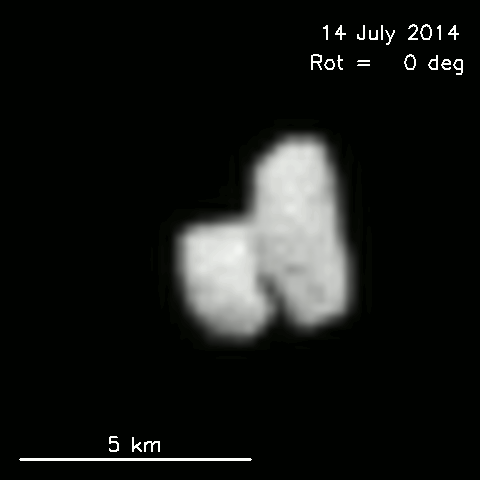
|
Explanation: Why does this comet's nucleus have two components? The surprising discovery that Comet 67P/ChuryumovGerasimenko has a double nucleus came late last week as ESA's robotic interplanetary spacecraft Rosetta continued its approach toward the ancient comet's core. Speculative ideas on how the double core was created include, currently, that Comet ChuryumovGerasimenko is actually the result of the merger of two comets, that the comet is a loose pile of rubble pulled apart by tidal forces, that ice evaporation on the comet has been asymmetric, or that the comet has undergone some sort of explosive event. Pictured above, the comet's unusual 5-km sized comet nucleus is seen rotating over the course of a few hours, with each frame taken 20-minutes apart. Better images -- and hopefully more refined theories -- are expected as Rosetta is on track to enter orbit around Comet ChuryumovGerasimenko's nucleus early next month, and by the end of the year, if possible, land a probe on it.
|
January February March April May June July August September October November December |
| ||||||||||||||||||||||||||||||||||||||||||||||||
NASA Web Site Statements, Warnings, and Disclaimers
NASA Official: Jay Norris. Specific rights apply.
A service of: LHEA at NASA / GSFC
& Michigan Tech. U.
Based on Astronomy Picture
Of the Day
Publications with keywords: comet
Publications with words: comet
See also:
